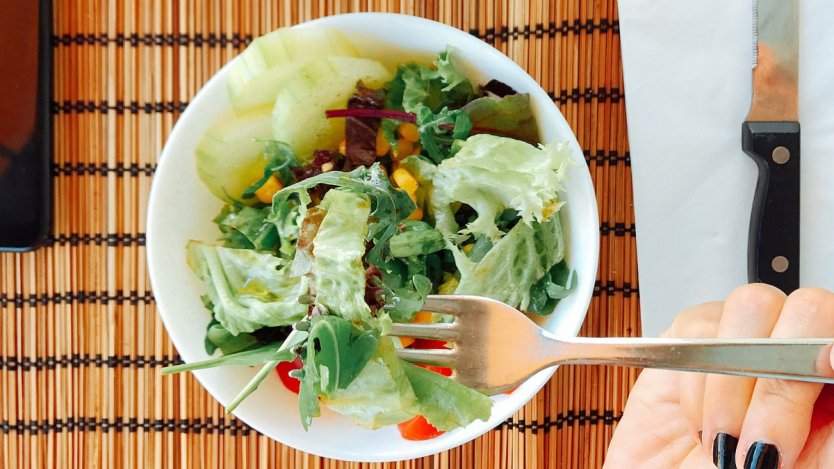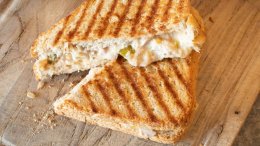It’s mid-May, and chances are, you’ve already had a bout of hysteria about the impending swimsuit season. More than four months into 2018, those New Year’s resolutions are likely out the window, so for many, the anticipation of summer is the next chance to get back on the weight loss bandwagon. Maybe this time you’ll try going keto, because paleo didn’t work out too well the last time around. Or perhaps a month on the Whole 30 program is exactly what you need to accomplish the bikini bod you’ve always wanted. But most likely, none of those approaches will actually work.
We live in a world where the idea of “body positivity” is becoming increasingly encouraged, yet the old school diet culture of the 80s and 90s is as prevalent as ever. Despite having shifted from the Atkins diet to the keto diet, the approach is still the same; it’s just old wine in new bottles. Short term diets revolve around the idea of restriction: you cut out A and/or eat only B. Sometimes you get to eat bacon, sometimes you don’t, and bread is almost always the enemy. These foods are demonized in the interest of getting you to eat “healthier”, but what the multi-billion dollar diet industry doesn’t want you to know is that it has never worked, and never will (there’s a reason why it’s a multi-billion dollar industry).
Thankfully, there are alternate ways to look at food and eating that don’t involve dieting. The concept of intuitive eating was first introduced in the mid-1990s, and is only now gaining steam with dietitians, psychologists, and their clients alike. It’s an approach that hones in not on what we eat, but why and how we eat it. As the name suggests, intuitive eating shifts the focus away from being told what and how much to eat, towards relying on ourselves to gain this insight.
Intuitive eating is organized into 10 principles that highlight everything from rejecting the diet mentality and making peace with food, to honouring your hunger and discovering satisfaction in eating. All of the principles build on each other to emphasize the overarching idea that if we get back in touch with what our bodies naturally want and need, we can derive greater satisfaction from food, and the question of “What do I want to eat?” becomes much less loaded.
For many, intuitive eating sounds great in theory, but the actual application of it can often be stymied by our lack of trust in our body’s ability to tell us what it needs, without going overboard. We might fall back on restriction because diets offer what we perceive to be credible advice about how and what to eat.
But why doesn’t this restriction work? In the words of Evelyn Tribole, the woman behind intuitive eating, “The presence of the food police brings out the presence of the food rebel.”
As humans, we’re hardwired to want what we can’t have, much like the teenager who tiptoes into the house at 10 p.m. after being told not to stay out past curfew. The same goes for food: telling yourself to keep your hands off the bag of ketchup chips rarely has the desired effect.
According to intuitive eating, we often restrict because we don’t trust ourselves around “forbidden foods”. French fries, chips, ice cream—we think it’s better not to have these foods on hand lest we overdue it. Self-control, however, is not the issue here. Binge eating isn’t explained as simply as, “it was so good, I just couldn’t stop myself.”
Let’s go back to the example of the ketchup chips, because, Canada. Let’s say that whatever diet you’re on says no ketchup chips, just kale, salmon, and quinoa instead. Maybe you can subsist on those three things for a week, maybe two; but inevitably, you’re going to break. You’re going to reach for the chips and after the first few handfuls, decide, “To hell with it all” and eat the whole bag, because tomorrow, you’re off ketchup chips forever. Cue the guilt, shame, and overall conclusion that you’re never going down that road again. You can’t trust yourself around ketchup chips, so the only way forward is to eliminate them.
Whether it’s ketchup chips or any other forbidden food, this restrict-binge-repeat cycle is the outcome of any diet mentality. So, rather than antagonizing certain foods, what if we change it so that these foods, and all foods, are always on the table (no pun intended)? When we give ourselves unconditional permission to eat any food, there’s no need to go all out because we know we can eat the same food again later.
All of these ideas are central to intuitive eating. Rather than following general and pseudoscientific rules about what’s best for us, intuitive eating helps to foster a healthier partnership with food and a sense of trust that we know what’s best for ourselves. We just have to listen.













